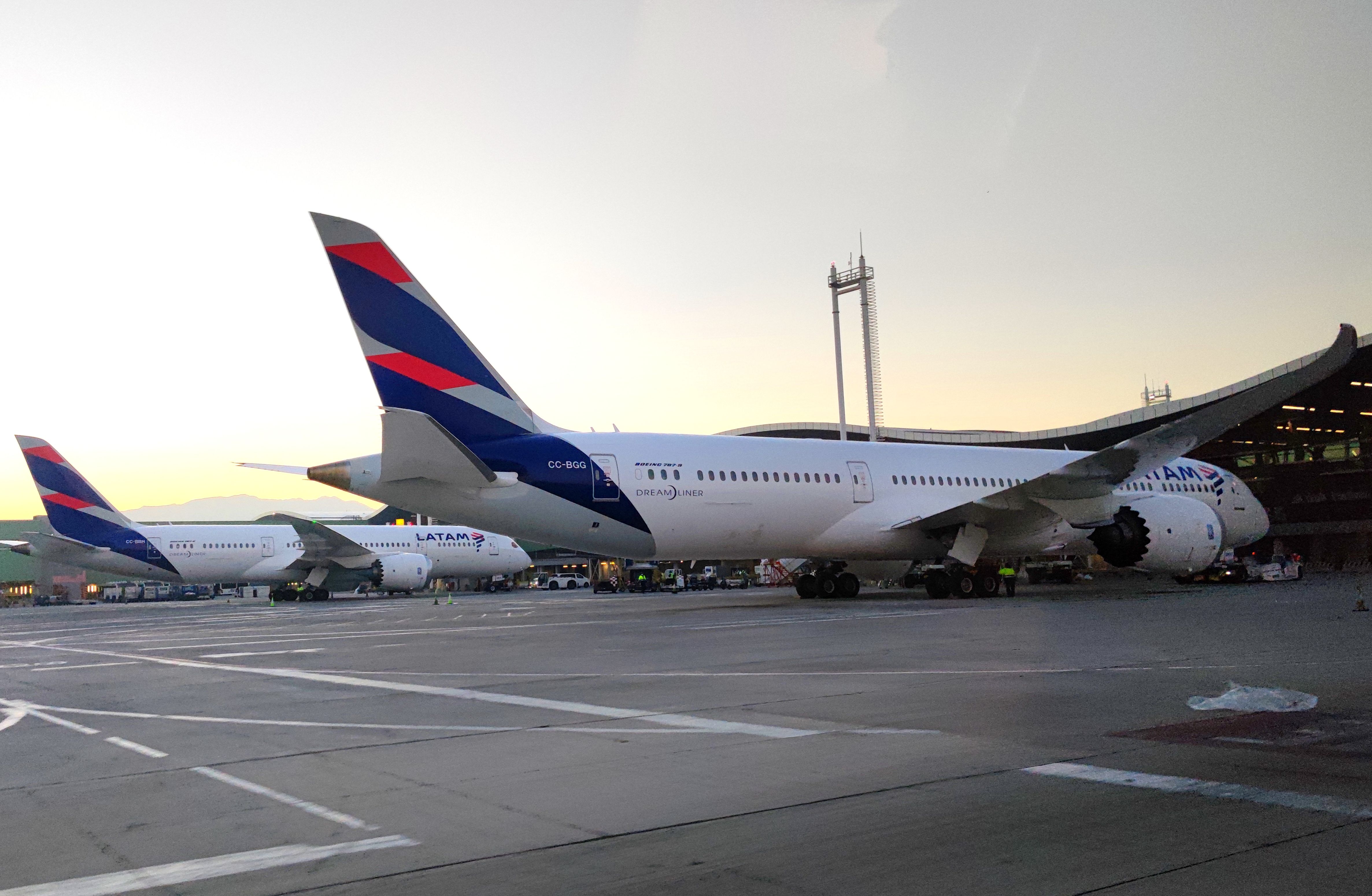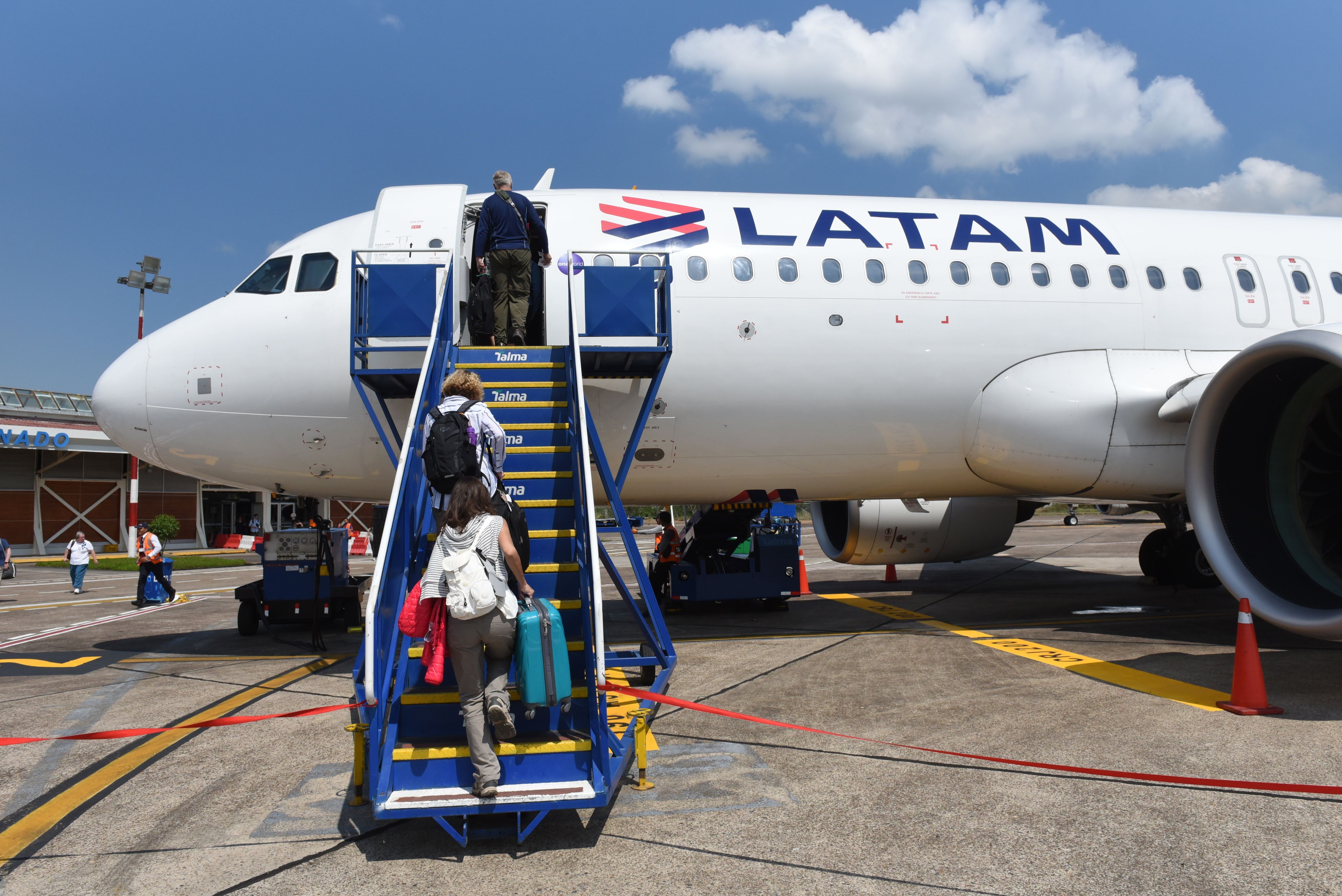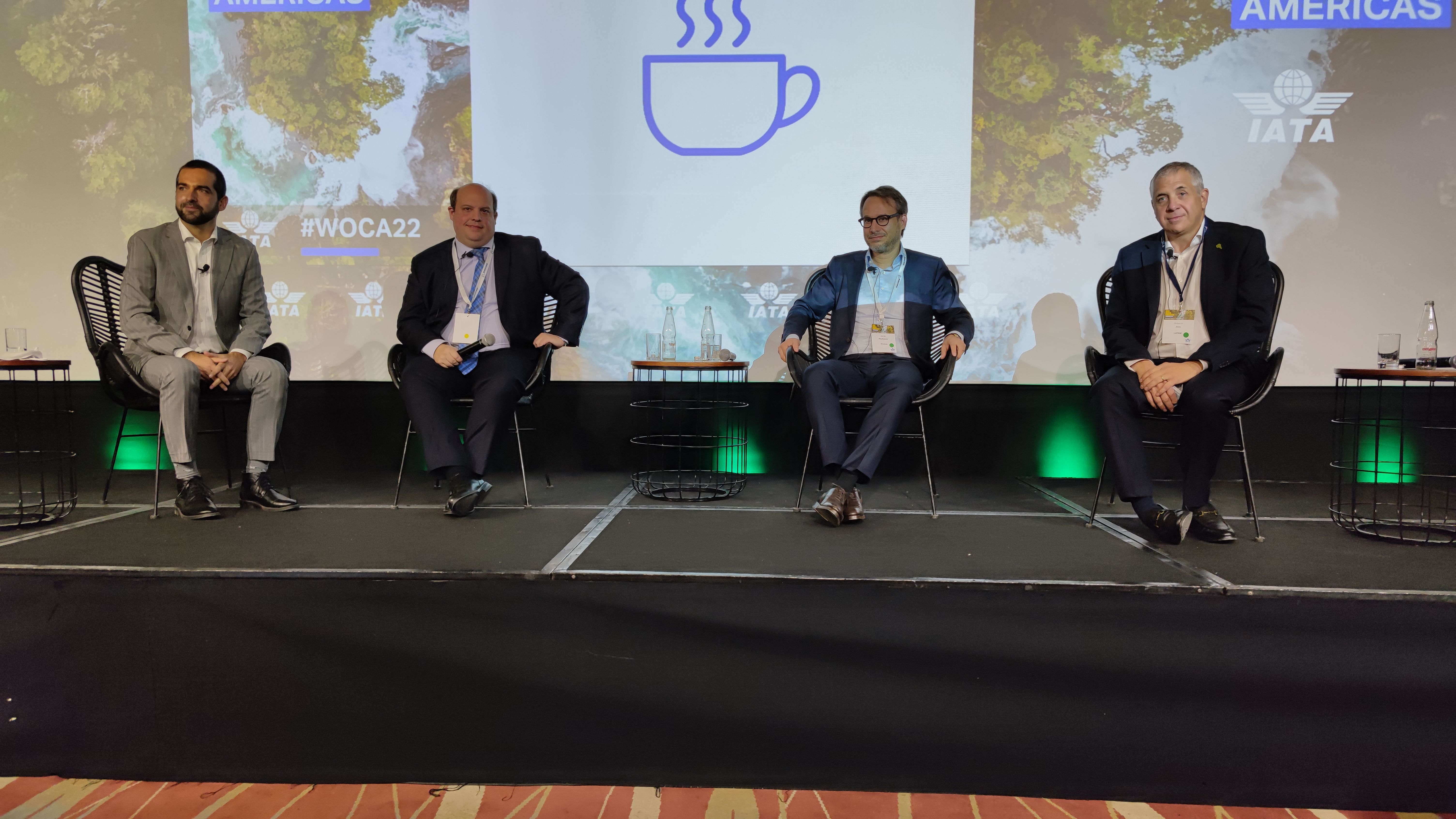LATAM Airlines Group seeks to reach 5% sustainable fuel use by 2030, the airline’s CEO, Roberto Alvo, said during Wings of America, an event taking place in Santiago de Chile. The largest carrier in South America sees decarbonization as the biggest challenge for the aviation industry in the first half of the current century.
Introducing SAF
LATAM is looking to incorporate sustainable aviation fuels (SAF) in its operations as part of the group’s sustainability strategy. The company (composed of airlines in Chile, Brazil, Colombia, Ecuador, and Peru) aims for 5% of its whole fuel consumption to come from SAF by 2030. That means LATAM will use up to 80 million SAF gallons (the equivalent of two million barrels), avoiding the emission of 580,000 CO2 tons.
The airline will promote a public-private collaboration looking to scale up SAF production in South America. The continent has optimal conditions regarding the availability of resources, and LATAM is already looking into projects in certain countries like Brazil.
Nonetheless, the Latin American region is currently non-existent in the SAF industry. Approximately 70% of SAF comes from the United States, with the remaining 30% coming from Europe, said Roberto Alvo. As the region’s largest carrier, LATAM has to give the first step and incentivize the production of sustainable aviation fuels.
The challenge at the moment is to promote awareness and do it as quickly as possible, because eight years in the airline industry is not a lot of time.
“For this to happen, public and private actors, including LATAM, need to collaborate, play their role and lead the energy transition that we need to make the world a better place,” said Alvo.
The biggest challenge of the airline industry
When the times come in 2050, the airline industry will look back into aviation’s most significant challenge of the century and will find out it wasn’t COVID-19. Instead, the decarbonization of the industry will be the most complex task the airlines face, Alvo said while speaking to journalists.
The governments in Europe are looking at imposing the use of SAF in the airline industry by establishing quotas and adding penalties. That’s a poorly aligned approach, said Alvo. He added,
"What these quotas will generate is the production that is only what the government mandate asks for, and the price of the fuel will be equal to the price of oil plus the penalty an airline has to pay if the biofuel is not consumed. It's not going to generate a benefit. At the end of the day, we have to avoid these costs being passed on to the passenger."
The Latin American region requires a robust regulatory framework and incentives by the governments, which allow SAF costs to come down and improves demand. Currently, most Latin American governments (and, to that extent, world governments) don’t have the current rules to allow for SAF. The world produces just 0.2% of the SAF required, and the prices are between 300 and 600% higher than current fuel prices, said Alvo.
There’s demand: IATA
The International Air Transport Association (IATA) is working to show governments worldwide there is a demand to promote and produce sustainable aviation fuels.
“There is more money than projects in the market,” said Sebastian Mikosz, Environment & Sustainability Senior Vice President at IATA. “Banks and venture capitals call me, and they ask me where they can invest in real green projects. Producing SAF and hydrogen is really a green project, but the lack of framework prevents those investments.”
In the Latin American region, IATA works with four countries with some sort of experience in the SAF industry. These countries are Brazil, Colombia, Mexico, and Chile. Arguably, Brazil is the most advanced of them all, although it faces severe regulatory problems. For instance, Brazil currently charges fuel as an imported product, with high tariffs, when the country actually produces the good, said IATA.
Do you think LATAM's plans to employ SAF are feasible? Let us know in the comments below.



